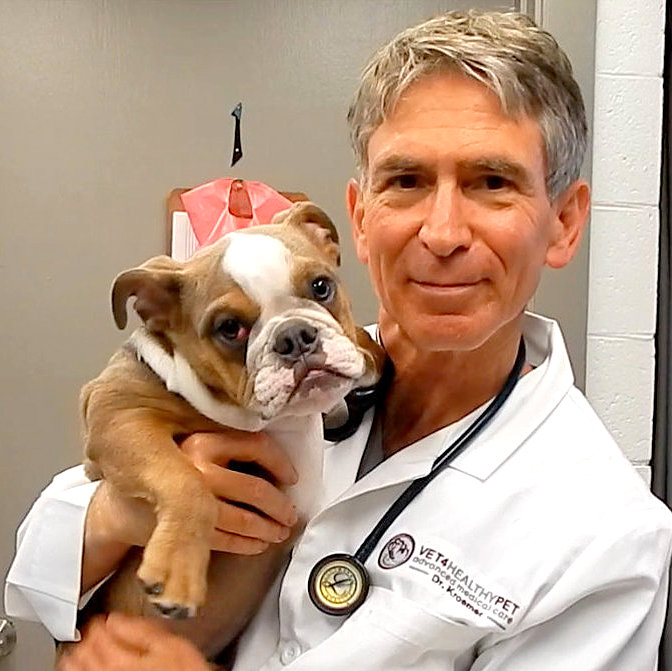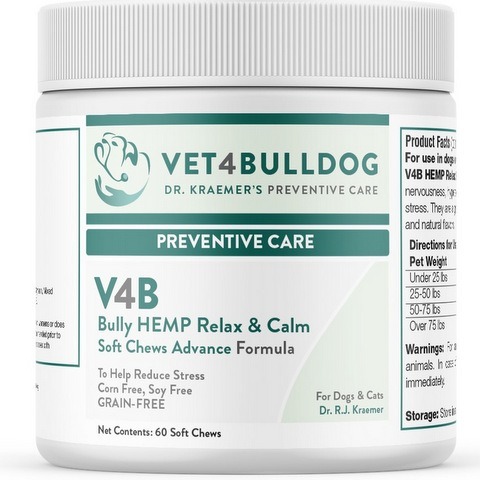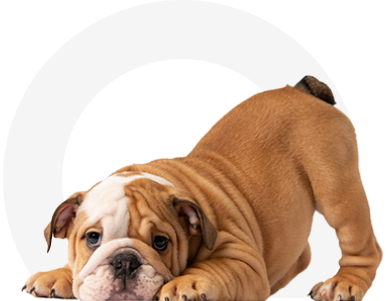Some bulldog owners view cystitis and UTI as one of the same. While bulldog and French bulldog UTIs could lead to cystitis, it’s important to note that not all instances of cystitis are a result of UTIs.
Bulldog Urinary Tract ANATOMY & FUNCTION
Urine formation in your bulldog’s body is a result of the blood filtration process.
BLOOD CIRCULATION (Step 1):
A network of blood vessels circulates throughout your bulldog’s body, delivering essential oxygen and nutrients while collecting waste products.
BULLDOG KIDENY (Step 2):
The paired organs, the kidneys, serve as filters. They efficiently remove waste products and excess fluids from the blood. These waste products and fluids then combine with water to form urine.
BULLDOG URETER (Step 4):
Two slender tubes, known as ureters, transport the newly formed urine from the kidneys to the bladder.
BULLDOG BLADDER (Step 5):
The bladder is a muscular sac responsible for storing urine until it reaches a specific volume and pressure. This triggers the urge to urinate.
BULLDOG UREHTERA (Step 6):
The urethra, a tube, facilitates the exit of urine from the body during the act of urination. It serves as the final pathway for the expulsion of urine from the bulldog’s system.
- Urine analysis:
- urine ph
- WBC
- RBC,
- Crystals
- Proteins
- etc

- Blood test
- kidney function
- sugar
- blood count
- thyroid levels
- etc
- Imaging:
- Radiographs
- Ultrasound
- Excretory urography (with or without a pneumocystogram): this intravenous dye contrast study “lights up” the kidneys and ureters while the pneumocystogram adds air to the bladder. It is very helpful in documenting pyelonephritis and is also of benefit in some cases as it helps detect stones in the urinary tract, and may identify other abnormalities, such as ectopic ureters

- Urine culture and sensitivity testing: play a crucial role in identifying the precise pathogen causing a urinary tract infection (UTI) and determining which antibiotics are effective in eradicating it.
UTI in Bulldogs and French Bulldog PREVENTION:
Outlined are some key strategies for preventing urinary tract infection
- Lean Weight: Maintain a healthy weight through a proper diet and exercise to alleviate pressure on the bladder, reducing the risk of bacterial growth.
- Proper Hydration: Encourage frequent urination by providing readily available, fresh water. Enhance appeal with ice cubes or broth.
- Quality Diet: Opt for a high-quality diet rich in moisture and essential nutrients. Consult your veterinarian for tailored recommendations.
- Regular veterinary checkups and urine tests are necessary for the early detection of UTIs and for monitoring bladder health.
- Avoid Harsh Detergents: Refrain from harsh detergents when cleaning the vaginal area, opting for gentle alternatives.
- Sufficient Urination Opportunities: Ensure convenient urination options such as doggy doors or regular pee walks to maintain bladder health.
- Boost the Immune System:
- V4B Bully Immune Support
- V4B Bully Fish Oil EFA
- Stress-Free Environment and Playtime: Provide a stress-free environment with ample playtime and affection, promoting overall well-being.
- V4B Bully HEMP Calm & Relax
- V4B Bully StressLess Formula
- Regularly clean and dry deep skin folds; maintain hygiene around the vulva to prevent moisture buildup and bacterial growth.
- V4B Bully Skin-fold Wipe
- V4B Bully Skin-fold Lotion
- Cranberry Urinary Therapeutic Supplements:
- V4B Bully Urinary Health Formula: can help prevent multidrug resistance bacteria biofilm
These strategies encompass a holistic approach to preventive care, promoting the well-being of bulldogs and minimizing the risk of urinary tract issues.
Bulldog Urinary Tract Infection (UTI) / TREATMENT
- ANTIBIOTICS: initiating antibiotic treatment based on urine culture results is essential for effectively treating urinary tract infections (UTIs) in bulldogs. The success of treatment largely depends on selecting an antibiotic to which the infecting bacteria are sensitive, administering it at the appropriate dosage, and adhering to the recommended duration of treatment without interruption. Performing a follow-up urine culture at the end of antibiotic treatment is often recommended to confirm the complete eradication of the urinary tract infection (UTI). This follow-up culture helps ensure that the antibiotic therapy has been successful in eliminating the bacteria causing the infection.
- PAIN CONTROL RX: NSAID and other analgesics
- SURGERY: in some cases, surgery will be required, examples are
- urinary stone removal
- ectopic urethra repair
- polyp or tumor removal
- vaginal skinfold dermatitis repair (vaginoplasty)

- SUPPLEMENTS:
- Dr. Kraemer’s V4B Bully Urinary Support Forumla: help prevent biofilm (resistant bacteria)
- Dr. Kraemer’s V4B Bully AchLess & Comfort: helps to manage pain and discomfort
- Dr. Kraemer’s V4B Bully Fish Oil Chews: help reduce inflammation
- Dr. Kraemer’s V4B Bully Immune Support: helps boost the immune system

4. TOPICALS: Keep your female English bulldog or French bulldog puppy’s vaginal folds dry and clean.
- “V4B Bulldog Skin Fold Antiseptic Wipes” once or twice daily.
UTI in Bulldogs and Fr. Bulldogs : TIPS & WARNINGS
Here are a few recommendations and cautions curated by Dr. Kraemer regarding this medical condition:
BULLDOG UTI TREATMENT TIP
The treatment approach for urinary tract infections in bulldogs typically involves antibiotics. On the other hand, UTIs resulting from bladder stones will also require a
- specialized prescription custom diet
- proper hydration
- incorporating bully therapeutic supplements
BULLDOG UTI SURGICAL TIP
In some cases, surgical intervention may be necessary to remove the bladder stones and alleviate the condition. Regular veterinary consultation is crucial to determining the most appropriate course of action based on the specific diagnosis and needs of your bulldog.
BULLDOG UTI HYDRATION TIP:
Increasing the water intake of your bulldog and French bulldog is recommended to prevent crystallization and the formation of new stones. This can be achieved by offering additional drinking water and incorporating moist food into their diet. Adequate hydration is essential to dilute the urine and discourage the development of crystals or stones in the urinary tract. Regular access to fresh water and moisture-rich food can contribute to the overall urinary health of your pets.
BULLDOG UTI THERAPEUTIC SUPPLEMENTS TIP:
Supplements containing polyphenols found in cranberry, marshmallow root, echinacea, astragalus, and Oregon grape root extracts have been shown to help reduce the adhesion of pathogenic-resistant bacteria to the cell surface (biofilm).
Another helpful bulldog therapeutic supplement is:
- Immune boosters
- Ache relief
- Live probiotics, and digestive enzymes
- Stress relief
UTI TESTING & DIAGNOSIS WARNING
If your bulldog exhibits any signs of urinary distress, it is crucial to seek veterinary attention promptly for testing. Urinary issues can be painful for your pet, and delayed intervention may lead to additional complications. Early diagnosis and appropriate treatment are essential to address the underlying cause and alleviate discomfort, ensuring the overall well-being of your bulldog.
BULLDOG URINARY BLOCKAGE WARNING:
Male bulldogs possess a long and narrow urethra, whereas female bulldogs have a short and wide urethra. Consequently, male bulldogs face a significantly higher risk of urinary urethral blockage, where even small stones can obstruct normal urination.
Such cases are considered emergencies, as the obstructing stones should be removed as quickly as possible to relieve the blockage and prevent further complications. Timely veterinary intervention is crucial to addressing this potentially serious condition in male Bulldogs
Recommended by Owners Approved by Bulldogs


























